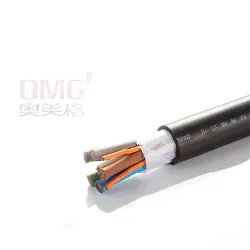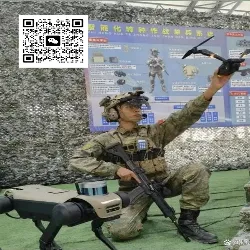| Company: | Guangdong OMG Transmission Technology Co., Ltd. |
| Location: | China - Guangdong,Building B-7, No. 1, Yiran Road, Songshan Lake Park, Dongguan City, Guangdong Province, China. |
| Price: | Negotiation |
| Contact: | Xie(Salesperson) |
| Contact Me: |
Mobile:+86-18128028322 |
Analysis of electric vehicle charging pile cable standards
Due to the interactivity of charging technology, charging cables not only transmit energy from the connected distribution network to electric vehicles, but also have the functions of transmitting vehicle information (such as charging current control, vehicle voltage information, insulation monitoring, etc.) and charging action control. They are a type of comprehensive cable that has both energy transmission and information transmission.
Functional requirements for charging cables: Electric vehicle charging cables are carriers that connect electric vehicles and charging piles. Their basic function is to transmit electrical energy. However, with the development of charging technology, in order to better complete the charging process, electric vehicles and charging piles need to communicate and automatically control when necessary. Therefore, the charging process places higher requirements on charging cables. Charging cables not only need to have the function of power transmission, but also need to transmit the status and information of vehicles and power batteries to charging piles for real-time interaction. Under necessary conditions, the charging action should be controlled to complete the charging process safely and reliably.
Safety requirements for charging cables: At present, the safety of electric vehicles has become a focus of the industry. The charging and discharging process of electric vehicles is long, the current intensity is high, and the cable is used frequently, so its safety should be highly valued. Electric vehicle charging cables should have high heat resistance and aging resistance on the basis of ensuring good insulation performance. At the same time, they should have good low-smoke flame retardant properties when burning to ensure that losses and damage are minimized.
Basic technical requirements for charging cables: Most charging cable products on the market are produced based on these two standards, but with the further development of charging cable technology and the improvement of usage requirements, these two standards have also seen a large difference in the technical requirements of charging cables. Electric vehicle charging cables need to be frequently moved during use and are mobile soft cables. They need to have considerable softness, so the insulation materials and sheath materials used also need to have good flexibility.
From the perspective of certification standards, in the two standards IEC 60245 and IEC 60227, the cable insulation materials and sheath materials that can be used in mobile occasions are specified. Some materials (such as PVC/D-type polyvinyl chloride mixture insulation materials and SE 3-type rubber mixture sheath materials, etc.) can meet the technical requirements of charging cables. Therefore, in the early development and manufacture of charging cable products, most products cited these two standards as a basis.
Excellent solution service provided by professional cable manufacturers, welcome to search and visit: OMG EV charging cable
Disclaimer:All information is provided by registered users. You may assess risks based on corresponding qualifications.
 Standard UL3932 70 sq. ft. Automotive Cable Applications
Standard UL3932 70 sq. ft. Automotive Cable Applications
 Understanding spring-loaded charging cables: a flexible and efficient charging solution
Understanding spring-loaded charging cables: a flexible and efficient charging solution
 The role of quality aspects of OMG liquid-cooled charging manufacturers
The role of quality aspects of OMG liquid-cooled charging manufacturers
 Application and development trend of EVs high voltage wiring harness in modern vehicles
Application and development trend of EVs high voltage wiring harness in modern vehicles
 EVs Charging Pile Cable Performance Characteristics and Material Selection Points
EVs Charging Pile Cable Performance Characteristics and Material Selection Points
 Overview of electric vehicle charging station construction specifications and requirements
Overview of electric vehicle charging station construction specifications and requirements
![CY7C68013A-56LTXC.CYPRESS]() CY7C68013A-56LTXC.CYPRESSIntroducing the CY7C68013A-56LTXC , the latest in cutting-edge USB technology ." "
CY7C68013A-56LTXC.CYPRESSIntroducing the CY7C68013A-56LTXC , the latest in cutting-edge USB technology ." "![MAX4544EUT+T.MAX]() MAX4544EUT+T.MAXhe MAX4544EUT+ is the ultimate solution for all your audio and video signal processing needs ." "
MAX4544EUT+T.MAXhe MAX4544EUT+ is the ultimate solution for all your audio and video signal processing needs ." "![VNQ7040AYTR.ST]() VNQ7040AYTR.STIntroducing the VNQ7040AYTR , the latest innovation in technology that is sure to take your experience to the next level ." "
VNQ7040AYTR.STIntroducing the VNQ7040AYTR , the latest innovation in technology that is sure to take your experience to the next level ." "![TMS320F28335PGFA.FZX]() TMS320F28335PGFA.FZXIntroducing the TMS320F28335PGFA , the latest and most advanced microcontroller from Texas Instruments ." "
TMS320F28335PGFA.FZXIntroducing the TMS320F28335PGFA , the latest and most advanced microcontroller from Texas Instruments ." "



